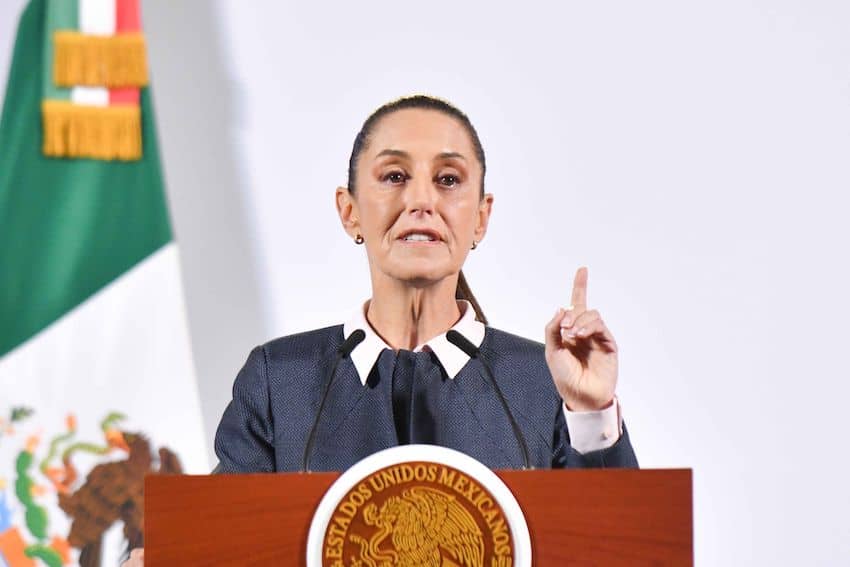Mexico detains over 5,000 migrants in a single day

The federal government said Wednesday that more than 5,000 migrants were detained across Mexico on Tuesday, an indication that authorities are clamping down on migratory flows to the northern border ahead of Donald Trump’s inauguration as U.S. president on Jan. 20.
The government said in a statement that the Army, Navy, National Guard and state police “rescued” 5,234 migrants during an operation “in support” of the National Immigration Institute.
“Rescued” is a government euphemism for detained that alludes to the fact that migrants face a range of dangers, including human trafficking, as they travel through Mexico toward the country’s northern border.
Many of those detained on Tuesday will likely be deported to their countries of origin.
The government didn’t specify where the more than 5,000 migrants were detained on Tuesday. It did say that 349,625 migrants were “rescued” between Oct. 1 — the day President Claudia Sheinbaum took office — and Dec. 3.
The arrests on Tuesday came after immigration authorities broke up two small migrant caravans late last week.

The detention of a large number of migrants on a single day coincided with the largest fentanyl bust in Mexican history, with authorities seizing more than 1 tonne of the synthetic opioid in Sinaloa.
In any future meetings with Trump or members of his team, the Mexican government could argue that the mass arrest of migrants and the huge fentanyl bust are evidence of its strong action against the flows of people and narcotics to the United States.
Trump campaigned heavily on his plan to stem the flow of migrants and drugs to the United States, and on Nov. 25 declared that he would impose a 25% tariff on all Mexican and Canadian exports on the first day of his second term as part of his strategy to address the problems.
He asserted in a social media post that the tariff would remain in effect “until such time as Drugs, in particular Fentanyl, and all Illegal Aliens stop this Invasion of our Country!”
“Both Mexico and Canada have the absolute right and power to easily solve this long simmering problem,” Trump added.
“We hereby demand that they use this power, and until such time that they do, it is time for them to pay a very big price!” he said.
The Mexican government has indicated that its argument against the proposed blanket tariff will largely focus on the adverse economic consequences of its implementation. But evidence that it has increased enforcement against migrants and drugs would only strengthen its case.


Sheinbaum spoke to Trump on Nov. 27, and the latter claimed that the Mexican president agreed to “stop migration through Mexico, and into the United States, effectively closing our southern border.”
Sheinbaum denied reaching such an agreement, retorting that “Mexico’s position is not to close borders but to build bridges between governments and between peoples.”
The president has, however, said that migrant caravans don’t reach the northern border because they are “taken care of” in Mexico.
In a letter to Trump last week, Sheinbaum said that Mexico has developed a “comprehensive policy” to attend to migrants who “cross our territory” en route to the United States, and pointed out that migration to the U.S. has declined 75% over the past year, in large part due to President Joe Biden’s implementation of a new border policy in early June.
It remains to be seen whether Trump will act on his most recent tariff threat, but it is clear that Mexico will argue forcefully against the imposition of a duty on exports to its largest trading partner.
Judging by Tuesday’s actions, concrete examples of a crackdown on migrants and drugs could form an important if not central part of the Mexican government’s argument. For Trump, those examples just might be more important than anything else.
By Mexico News Daily chief staff writer Peter Davies ([email protected])
Source: Mexico News Daily

